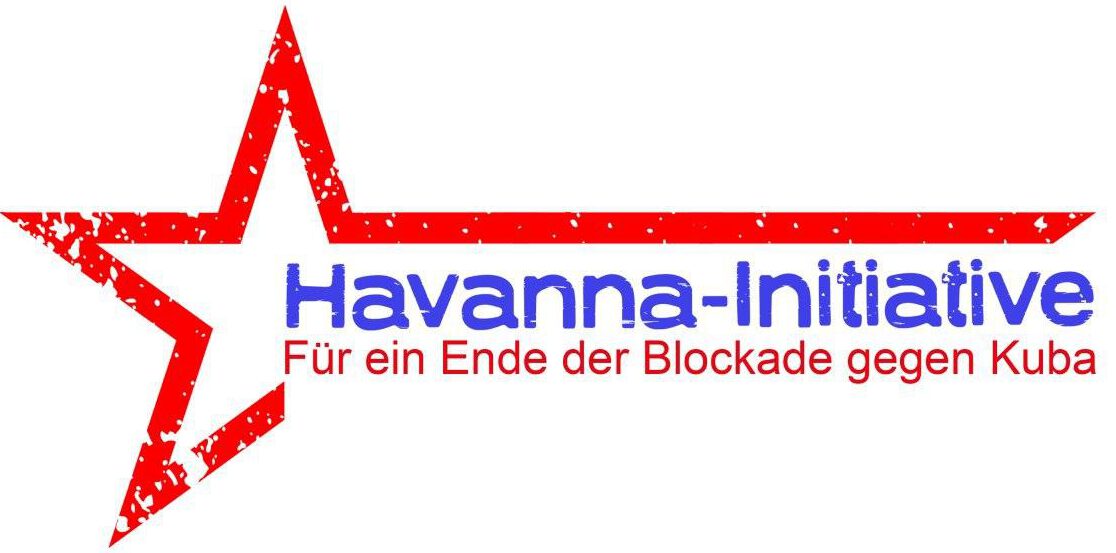It is unbearable: while Cuban medical teams support 27 countries in the fight against the coronavirus, the Trump administration continues to tighten its sanctions against Cuba, which are contrary to international law!
We are a group of German academics and cultural professionals working in Cuba, who have for many years now witnessed how the US embargo has increasingly worsened the daily living conditions of the Cuban people. While the international media has praised the country for its successful efforts in fighting the pandemic – most recently also the New York Times – and an international campaign is currently proposing that Cuban medical teams be nominated for the Nobelprize, the United States has put Cuba on a list of “terrorist states” and is hindering the delivery of medicines, materials for vaccine development and medical supplies to the Cuban population. And as if that wasn’t enough, the US government is now trying to bring Cuba to its knees by exerting pressure on countries to renounce Cuban medical missions and by implementing new rules which would make it nearly impossible for Cubans living abroad to send money to their families on the island. As such two of the most important sources of foreign currency still available to Cuba are being curtailed.
The Cuban people have been suffering for 60 years under the longest blockade in history. The UN and EU, as well as the German government, have long condemned these sanctions as contrary to international law, but without any consequences. On the contrary: German and European banks and companies are submitting themselves to the inhuman US sanctions in order not to endanger their economic interests in the USA. And now, according to press reports, the German Federal Minister for Economic Cooperation and Development, Gerd Müller, also wants to cancel German development aid and cooperation with Cuba – thereby strengthening the US embargo policy.
This all must finally come to an end! Let us help the Cuban people, just as their doctors and scientists are currently helping the world!
Across political party lines, the US blockade against Cuba is causing indignation worldwide. More and more states, institutions and public figures are calling for an immediate end to the embargo, including UN Secretary General António Guterres, UN High Commissioner for Human Rights Michelle Bachelet, Argentine President Alberto Fernández, Pope Francis, EU High Representative for Foreign Affairs and Security Policy and Vice President of the European Commission Josep Borrell, US church associations, a commission of experts of the UN Human Rights Council, as well as US senators and congressmen from both parties.
We join this global movement and appeal to the German government not to cancel its development cooperation with Cuba and, especially during its upcoming EU Council Presidency in the second half of 2020, to work actively for an end to the illegal blockade policy, to protect European actors in Cuba effectively from US sanctions with the 1996 EU regulation, in order to give all Cubans unrestricted access to economic, scientific and artistic exchange.
First signatories:
Fatih Akın, film director
Benny Adrion, FC St. Pauli, founder “Viva con Agua”
Marius Babias, director of Neuer Berliner Kunstverein
Michael Backmund, journalist and filmmaker
Rolf Becker, actor, labor union ver.di
Nora Bossong, poet and novelist
Wolfgang Bozic, conductor
Roberto Blanco, singer and musician
Thomas Brussig, author and screenplay writer
Noam Chomsky, linguist
Herta Däubler-Gmelin, former Federal Minister of Justice of Germany
Wolfgang Däubler, labor lawyer and professor of law, emeritus of University of Bremen
Jan Delay, musician and singer
Heinz Dieterich Steffan, Soziologe
Hauke Dorsch, anthropologist, University of Mainz
Jürgen Draeger, painter and actor
Klaus Engel, entrepreneur and cultural patron
Jenny Erpenbeck, writer and director
Julia Franck, poet and novelist
Karin Graf, literary agent and festival director
Thomas Hengelbrock, conductor and musicologist
Bert Hoffmann, political scientist, German Institute for Global and Area Studies
Hannes Jung, senior researcher DESY Hamburg
Gaby Horn, director of Berlin Biennale
Stefan Kaegi, theatre director, Rimini Protokoll
Rainer Klausmann, cameraman
Tobias Kraft, scientist, Academy of Sciences Berlin-Brandenburg
Udo Lindenberg, singer and musician
Peter Lohmeyer, actor
Oliver Lubrich, professor of literary studies, University of Bern
Constanza Macras, choreographer
Jeanine Meerapfel, film director and president of Akademie der Künste, Berlin
Robert Menasse, author and essayist
Guy Montavon, director, Erfurt Theatre
Susan Neiman, philosopher and director of Einsteinforum, Berlin
Claus Offe, sociologist
Frank Otto, entrepreneur and philanthropist
Norman Paech, professor of international law, emeritus of University of Hamburg
Felix Räuber, singer
Sandra Rebok, anthropologist
Oliver Reese, director, Berliner Ensemble
Werner Ruf, political scientist, emeritus of University of Kassel
Werner Rügemeier, philosopher and publicist
Joachim Sartorius, writer and translator
Roland Schimmelpfennig, author and screenplay writer
Volker Schlöndorff, film director and producer
Irmin Schmidt, composer
Gregor Schneider, visual artist, Kunstakademie Düsseldorf
Peter Schneider, author and screenplay writer
Ulrich Schreiber, director of internationales literaturfestival berlin
Eberhardt Schultz, Menschenrechtsanwalt
Alice Schwarzer, author and journalist
Hanna Schygulla, actress and singer
Azize Tank, former member of the German Federal Parliament
Michael Thalheimer, opera and theatre director
Margarethe von Trotta, author and film director
Konstantin Wecker, musician and author
Wim Wenders, film director
Gerhard Werle, professor of international law, Humboldt University Berlin
Sarah Willis, horn soloist, Berlin Philharmonic Orchestra
Johanna Wokalek, actress
Michael Zeuske, historian, University of Bonn
Jean Ziegler, former UN Special Envoy for the right to food
This petition was initiated by a group of German academics and cultural professionals, who have worked in Cuba for many years:
Andreas Baesler, theatre director
Ulrike Dorfmüller, linguist
Katrin Hansing, anthropologist
Rainer Schultz, historian
Michael Thoss, cultural mediator
Hans-Peter Weymar, film director
